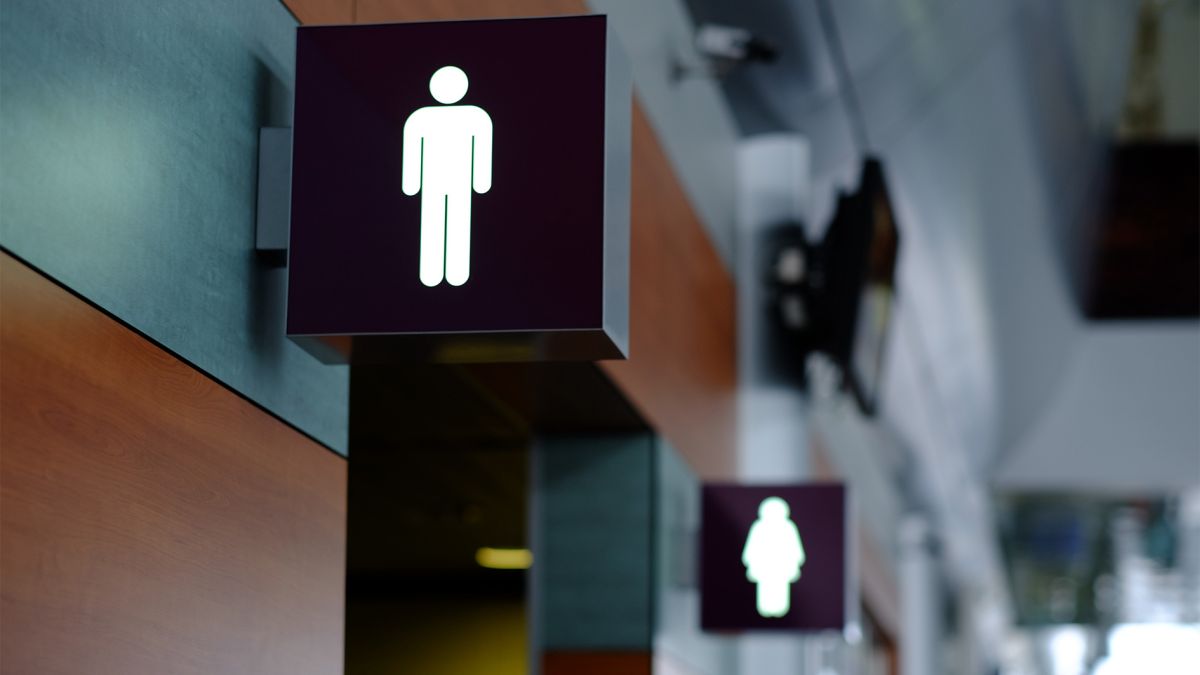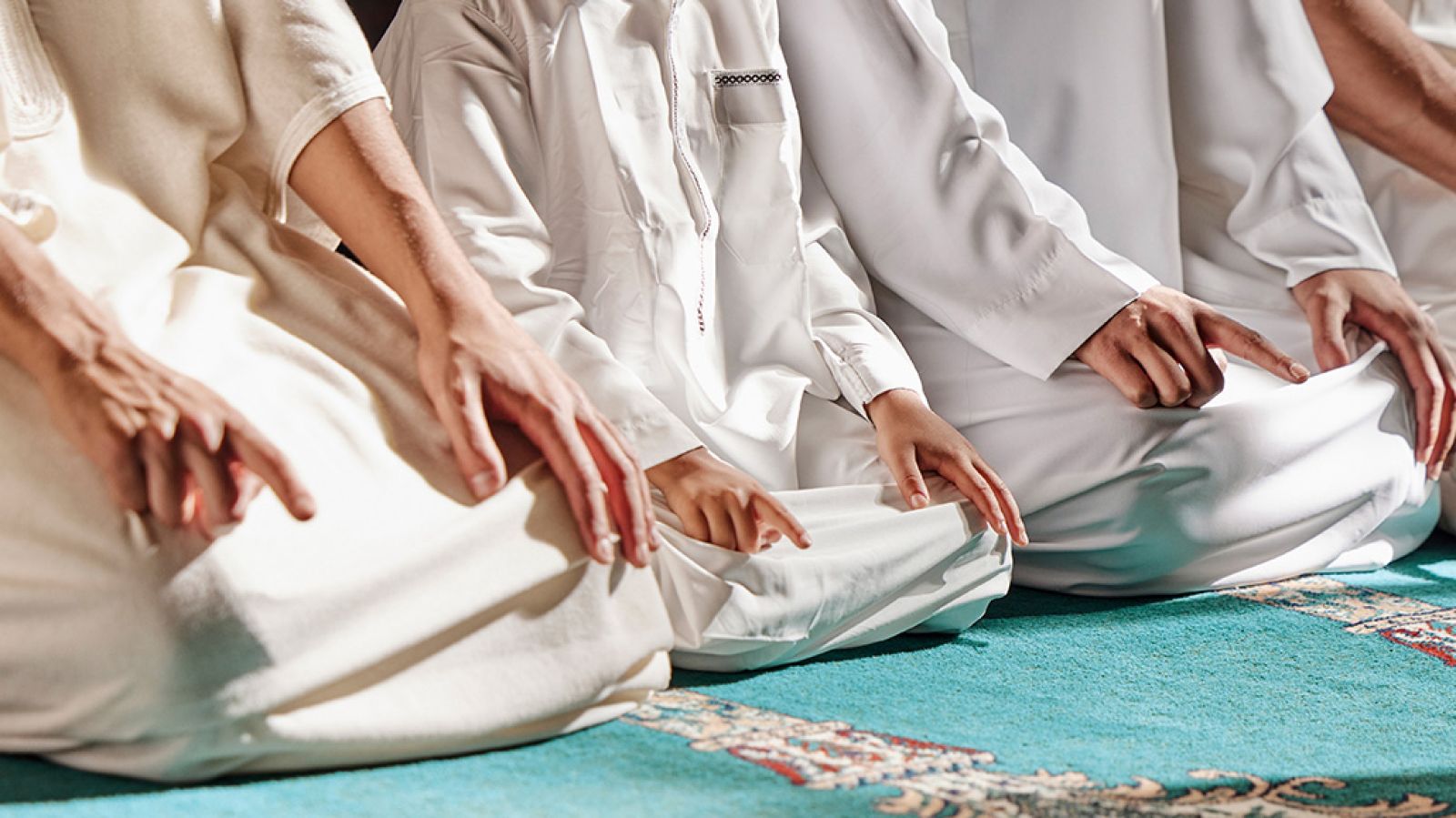The Wisdom and Meaning of the Invocations upon Entering and Leaving from the Lavatory
Imām Muhammad ibn Ṣāliḥ al-Uthaymīn


Invocations upon Entering the Lavatory
[Upon entering upon the toilet] it is sunnah to say ‘bismillāh’ [In the Name of Allāh]. [The evidence of this] is what has been narrated from ʿAlī ibn Abī Ṭālib (رضي الله عنه) that the Prophet (ﷺ) said:
‘[In order to] cover that which is before the eyes of the jinn and the private areas of the [bodies of] the Children of Ādam, if one of them should enter the toilet he should say:
“بسم الله”
“Bismillāh’’1
Then, it is sunnah to say: ‘I seek refuge in Allāh from al-khubth and al-khabāʾith.’ [The evidence of this is] what has been narrated by Anas (رضي الله عنه) in ‘al-Ṣaḥīḥayn’ [al-Bukhārī and Muslim] that if the Messenger [ﷺ] entered the toilet, he would say:
اللهُمَّ إِنِّي أَعُوذُ بِكَ مِنَ الخُبْثِ وَالخَبَائِث
‘I seek refuge in Allāh from al-khubth and al-khabā’ith’2
Al-khubth [means] evil and al-khabāʾith [refers to] evil souls.
[The ḥadīth] is narrated with al-khubuth as well which is the plural form of the word khabīth which means the males from among the jinn. [In this context], khabāʾith is the plural form of the word khabīthah, and would refer to the female jinn.
Pronouncing the sukūn [khubth (خُبْث)]; rather than khubuth (خُبُث) is the more encompassing [form of the invocation]. For this reason, the majority of the shuyūkh [of ḥadīth] have narrated it thus, as al-Khaṭṭābī3 points out.
Wisdom Behind the Invocation of Entering the Lavatory
The benefit in pronouncing the basmallah is that it covers [the exposed private areas of the body].
The benefit of seeking refuge is the seeking of Allāh’s protection from al-khubth [evil] and al-khabāʾith [evil souls]. This is because the place being entered is one of disgust. As such, it is a home for the disgusting—an abode for the shayāṭīn. Thus, it is befitting that upon entering the lavatory, one says: ‘I seek refuge in Allāh from al-khubth and al-khabāʾith,’ such that he remains unaffected by al-khubth or evil itself and al-khabāʾith or evil souls.
‘Upon entering’ here signifies before actually entering [the room]. If one is in open land, it is before he sits to answer the call of nature.
‘Say [as in the ḥādīth]’ means that one should say it with his tongue except for one afflicted with muteness who should invoke with his heart.
Invocation upon Leaving the Lavatory
غُفْرَانَك
It is sunnah that upon leaving one says: ‘Ghufrānak’ because of the authentic ḥadīth of Āʾishah (رضي الله عنها) that after the Prophet (ﷺ) would leave the depressed land [i.e. the lavatory] he would say: ‘Ghufrānak.’4
This was said after leaving [the room itself]. If in open land, it is said after leaving the place of sitting.
‘Ghufrānak’ here means: ‘[O Allāh!] I ask for your forgiveness.’
Forgiveness: is the covering of misdeeds such that they are left unpunished. The word itself [in Arabic] is derived from al-mighfar [the helmet] of which the purpose is to cover and protect—it is not just to cover. Thus, the true meaning of saying: ‘forgive me’ is to cover my sins, and disregard them such that I am safe from punishment and shame because of them.
Wisdom behind the Invocation of Leaving the Lavatory
As for the appropriateness of saying ‘[O Allāh!] I ask for your forgiveness’ here, it is said that when a person has rid himself of that which is harmful to his physical body, he remembers the harm caused by his own sin. Thus, he invokes Allāh that he also rids him of the burden of his sin, just as He has blessed him in allowing him to rid himself of bodily harm. It is a way of allowing the remembrance of one matter to act as a reminder for another and thus its meaning is most suitable [to the situation].
Some scholars have also said: He asks Allāh for His forgiveness because he was prevented from His remembrance while in the lavatory. So he should seek forgiveness from Allāh for that duration of time in which he refrained from remembering Him.
However, there is some weakness in this opinion. This is because he has refrained from the remembrance of Allāh by His order. Considering this, he has not made himself susceptible to punishment [for this reason]. Rather, he is closer to deserving a reward [from Him]. In this vein, the menstruating woman does not pray or fast and upon her attaining purity [finishing her menses] she does not seek forgiveness from Allāh for her refraining from praying and fasting during her days of menstruation. No [scholar] has ever said that she should, nor has a Sunnah [ḥadīth] been narrated to this effect. [Thus], the former opinion is correct.
Endnotes:
1 Narrated by al-Tirmidhī: 606 and Ibn Mājah: 297. This ḥadīth itself is weak; labelled as such by al-Nawawī, but is strengthened by other aḥādīth with the same meaning for which it is granted authenticity. Thus, it was graded ṣaḥīḥ [authentic] by Mughlaṭāy, Ḥasan by Ibn Ḥajar.
2 Authentic: narrated by al-Bukhāri: 142 and Muslim: 375.
3 See ‘Maʿālim al-Sunan’ 1:10.
4 Authentic: narrated by Aḥmad 6:155, Abū Dāwūd: 30, al-Tirmidhī: 7, al-Nasāʾī: 79 and Ibn Mājah: 300.
Source: Al-Sharḥ al-Mumtiʿ, 1:104-7
Translated by: Riyāḍ al-Kanadī
Most Popular: Last 30 Days

















